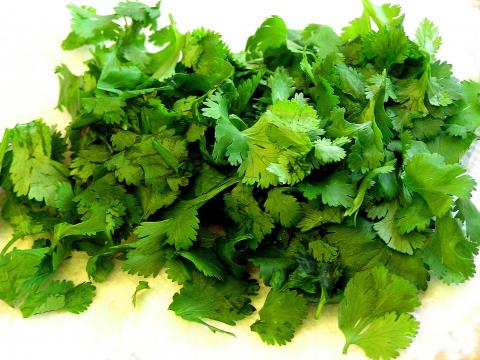
312-981-0409
33 N Dearborn St 10th Floor, Chicago, IL 60602
Serving Clients Across 7 Illinois Locations
Cilantro Cyclospora Outbreak Continues

A cyclospora outbreak traced to cilantro has infected 218 people so far this summer, making it the third consecutive summer that the parasite has travelled to the United States.
The 2013 Outbreak
In 2013, 631 people in 25 states were sickened from multiple cyclospora outbreaks beginning in June and ending in December. The outbreaks were traced to multiple food sources but the majority of illnesses were related to tainted produce from Mexico. 80% of the cases ocurred in Iowa, Nebraska, and Texas.
The 227 cases in Iowa and Nebraska were linked to commercial bagged salad mix produced by Taylor Farms, originating in Mexico. The salads were served at restaurants such as Olive Garden and Red Lobster.
The 270 Texas cases were traced to contaminated cilantro that was imported from the Puebla region of Mexico.
The 2014 Outbreak
In 2014, contaminated cilantro from the Puebla region of Mexico was again the source of a cyclospora outbreak. This particular outbreak infected over 120 people in Texas who ingested the cilantro that was either sold at grocery stores or served in restaurants.
The Investigation
The United States Food and Drug Administration (FDA) began investigating the outbreak by visiting the cilantro farms and processing facilities in the Puebla region of Mexico. FDA investigators found human waste and toilet paper in the growing fields, among other unsanitary conditions. Several of these operations lacked toilets and hand-washing facilities. Others did not have soap, toilet paper, paper towels, or running water. FDA officials reported that the crates used to transport produce were visibly dirty. The water used to wash cilantro was susceptible to contamination from sewage and septic systems. Additionally, at one establishment, the water in a tank used for hand washing tested positive for cyclospora.
From this investigation, the FDA concluded that the cilantro was being contaminated when the parasite shed from human feces that was left in growing fields. The FDA subsequently issued an import alert on cilantro from the Puebla region. This alert essentially bans imports and allows US officials to detain shipments of cilantro from the Puebla region without doing any sort of physical inspection. The FDA has not issued a recall at this time because there is no single supplier that is responsible for the outbreak, but rather, the distribution of cyclospora was widespread.
The FDA recommends that consumers turn to domestic sources of cilantro at grocery stores to reduce the risk of exposure to cyclospora.
What is Cyclospora?
Cyclospora is a parasite that causes the cyclosporiasis infection. This infection causes profuse diarrhea that can last for up to two months. Other symptoms of the infection can last for more than 60 days and include:
- Nausea
- Vomiting
- Weight loss
- Body aches
- Fatigue
- Abdominal cramps
- Gas
- Bloating
- Fever
- Other flu like symptoms
Cyclospora infection is treated with antibiotics.
Cyclospora is also difficult to wash off and can even survive freezing. However, cooking may kill the parasite. Other produce that has been known to carry cyclospora include:
- Raspberries
- Snow peas
- Basil
- Mesclun
Cyclospora is a dangerous parasite that can cause long-term, painful symptoms. If you believe you have been infected with cyclospora, it is important that you seek treatment from your healthcare provider and legal assistance to guide you in getting the relief you need from your food poisoning. The attorneys at the Law Offices of Newland & Newland are highly skilled and knowledgeable on food poisoning crimes and are well suited to assist you with your legal needs. Contact our office today to schedule your consultation. We make hospital and house visits upon request.
-

Foreclosure and Bankruptcy
Visit Website -

Real Estate and Estate Planning
Visit Website -

Personal Injury
Visit Website

 Spanish
Spanish Cantonese
Cantonese















